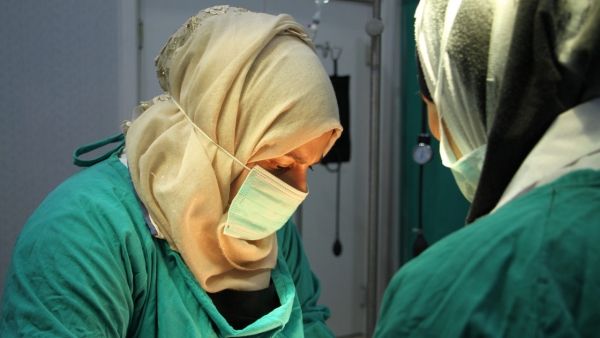BMJ Global Health is open access and online journal that publishes high-quality content on global health from policymakers, funders, researchers, and workers. The healthcare leadership of men and women in countries affected by armed conflicts and the pandemic remains highly challenging at a global level. This situation is well-known, but effective programs and financial support for medical and healthcare leaders have yet to be established.
This report draws attention to the situation of healthcare leadership in Syria. Healthcare has been weaponized as a means to push back against doctors and medical workers. Many of them have been attacked or forcibly displaced. In detail, there have been almost 600 attacks on healthcare and more than 900 healthcare workers killed. These attacks have been deliberate despite being in contravention with International Humanitarian Law (IHL). As a result, healthcare practitioners are facing a daunting situation that has gotten more complicated due to Covid-19. The pandemic in Syria has indeed wrecked the lives of dozens of healthcare professionals. Essentially, the focal points of the present study concern the threats to medical and healthcare professionals and to female leadership in Syria, especially in armed conflict.
With the death and exodus of doctors and healthcare workers, coupled with the withdrawal of the Damascus Ministry of Health, there is a huge void in the leadership of the healthcare system. The lack of resources, the unsuccessful operations of hospitals in the areas controlled by the opposition, the escalation of violence have put a strain on the healthcare leadership. However, medical practitioners and healthcare workers have rolled up their sleeves and they have reacted by leading and running various healthcare facilities and humanitarian organizations to assist civilians. Notwithstanding this, after ten years of conflict, the healthcare system is inevitably fragmented across the region. Consequently, each health system in Syria is independent with its governance, strategies and structures. For instance, Gaziantep leads north-west Syria where a WHO health cluster is located. Accordingly, the health cluster’s Covid-19 North-West Syria Task Force supported the response to the pandemic alongside a consortium led by Idlib Health Directorate, the Syrian Civil Defence, and other Syrian humanitarian organizations, which are responsible for the field response. By taking required action and enforcing restrictions, this leadership governance has successfully set targets in response to Covid-19. Despite the commitment of the healthcare leadership, the medical system in Syria is plagued by deeply rooted problems, including lack of transparency, nepotism, and poor accountability and investments. As it might be expected, the health system had weakened even prior to the outbreak of conflict.
As regards female leadership, the situation worsens due to the patriarchal social structures. The experience of Dr Amani Ballour, a paediatrician in southwestern Syria, serves as the clearest example of how a female leader overcomes challenges against gender bias. She reported to the documentary The Cave, that although women undertook work “under unprecedented and unpredictable conditions of constant bombing and attacks”, men still view women poorly even if they work as healthcare professionals. In this vein, the report emphasizes how role modelling and gender-inclusive leadership is crucial to combat Covid-19 and reduce gender inequality globally and at a local level, amidst the conflict and the ongoing pandemic.
In short, as the former head of Idlib Health Directorate, Munzer Khalil explains Syria needs solutions to support healthcare leadership. This outcome can only be achieved through the establishment of medical and healthcare leadership programmes to provide practitioners with the skills needed to lead the Syrian health system.
Sources:
https://gh.bmj.com/content/bmjgh/6/5/e005697.full.pdf
Author: Valentina Di Carlantonio







